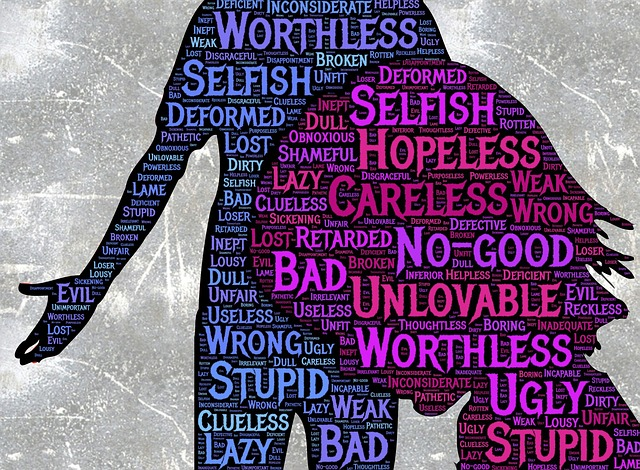Gaslighting: recognize manipulative and emotionally abusive people
|
Getting your Trinity Audio player ready...
|
Gaslighting: recognize manipulative and emotionally abusive people – and break free from their influence
What is Gaslighting?
Gaslighting is a form of emotional abuse and manipulation in which the abuser causes the victim to doubt his or her own memory, perceptions, and sanity.
Gaslighting is a very effective psychological manipulation tactic because it makes the victim question their version of reality. When you’re told that your experience isn’t real enough or true enough to be valid, you begin to doubt yourself. You may begin to think that perhaps what happened really wasn’t so bad, or that you’re making a big deal out of nothing.
This can be extremely confusing and frustrating, especially because gaslighting often happens gradually. It’s not always easy to spot when someone is gaslighting you. And even if you do realize it’s happening, it can be difficult to know how to respond.
If you suspect that gaslighting is happening to you or someone close to you, here’s what you need to know.
What makes Gaslighting so effective?
Gaslighting relies on a combination of manipulation and power, which are two very powerful tools. A manipulator will use these strategies to get the upper hand in different aspects of life, such as:

Dominating an exchange
Gaining power and control over the victim’s life, thoughts, and actions. This is usually achieved by establishing themselves as a reliable authority in the victim’s life. Once they have established this influence, they can then use it to control what information the victim receives, how situations are perceived, and ultimately, what actions are taken.
Creating confusion
The gaslighter will often create confusion by giving contradictory information or making false statements. They may also withhold important information or lie outright. This is designed to make the victim question their own memory and perception of events.
For example, a gaslighter might tell the victim that they didn’t see what they thought they saw, or that they’re imagining things that didn’t actually happen.
Isolating the victim
The gaslighter will often try to isolate the victim from other people in their life who could provide support or contradict the gaslighter’s version of events. This allows the gaslighter to further control the victim’s thinking and actions, as well as maintain their position of power.
What are some gaslighting techniques?
Some common gaslighting techniques include denial, blame-shifting, and minimizing. These techniques can be used by a variety of people, including individuals with narcissistic or sociopathic tendencies, toxic work environments, abusive relationships, and more. If you suspect that you are being gaslighted in any situation, it is important to reach out for help from a trusted friend or family member.
Gaslighting Examples:
• Amy has just started dating Tom, and she’s already noticing that he makes a lot of conflicting statements and seems to be hiding information from her. She starts to question whether or not her perceptions are correct, since it seems like Tom may not be being honest with her about some things.
• Paul works closely with his boss Jane, and he often feels like she is trying to control what he can say or do in the workplace. He begins to feel confused and frustrated by her behavior, and worries that he might not really know what is going on at work after all.
• Sarah is married to Jason, but she feels isolated from her friends and family who have been questioning why she stays with him. After years of gaslighting, she starts to doubt her own judgement about whether or not her relationship is bad for her mental health.

Gaslighting: How it works
The first step in gaslighting is to undermine your confidence in your ability to think or judge fairly. The manipulator will start by telling you that your perception of a particular event or situation is wrong – something so outrageous that you would second-guess yourself.
For example, they might tell you that you didn’t see what you thought you saw, or that you’re imagining things that didn’t actually happen. If this is done enough times, you’ll start to doubt your own memory and perception of events.
The next step is to make you question your sanity. The gaslighter will do things that make you question your grip on reality. They might lie to you about things big and small, or they might withhold information from you.
They might also try to convince you that other people in your life – friends, family, co-workers – are lying to you or conspiring against you. This is designed to make you feel isolated and alone, with no one to turn to for support.
The final step is to gain complete control over you. Once the gaslighter has succeeded in making you doubt your own memory, perception, and sanity, they will have complete control over you. They can manipulate you into doing things that you wouldn’t normally do, or believing things that aren’t true.
What gaslighting looks like?
There are a few key warning signs that can help you spot gaslighting before it’s too late. If you notice any of the following red flags in your relationship, it’s possible that you’re being gaslighted:
You’re always second-guessing yourself.
You feel like you’re ‘walking on eggshells’ all the time.
You’re starting to doubt your own memory and perception of events.
You feel isolated and alone, with no one to turn to for support.
You feel like you’re losing your grip on reality.
What are some common gaslighting tactics?
What gaslighting sounds like?
There are a few key phrases that gaslighters commonly use to undermine their victims. If you hear any of the following statements from your partner, it could be a sign that you’re being gaslighted:
“You’re too sensitive.”
“You’re overreacting.”
“You’re imagining things.”
“You’re just making things up.”
“It’s all in your head.”
Gaslighting: The warning signs
There are a few warning signs that can help you spot gaslighting before it’s too late. If you notice any of the following red flags in your relationship, it’s possible that you’re being gaslighted:
- You’re always second-guessing yourself.
- You feel like you’re ‘walking on eggshells’ all the time.
- You’re starting to doubt your own memory and perception of events.
- You feel isolated and alone, with no one to turn to for support.
- You feel like you’re losing your grip on reality.
If you suspect that you’re being gaslighted, it’s important to reach out for help. Talk to a trusted friend or family member about what’s going on, and consider talking to a therapist or counselor who can help you deal with the emotional fallout of gaslighting. Remember, gaslighting is a form of emotional abuse, and it can have a serious impact on your mental health.
How to Know Whether Someone is Gaslighting You:
If you notice that someone in your life tends to make you feel bad about yourself, or constantly questions your memory or perception of events, they may be using gaslighting tactics. Other common signs include feeling confused, anxious, and depressed; experiencing mood swings; and suffering from low self-esteem.

What are Gaslighting Tactics Used by the Gaslighter:
Gaslighters may use a variety of tactics to undermine their victims and assert control over them, including lying, denying things that you know are true, projecting their own emotions onto you, criticizing your reactions and behavior for being “irrational,” making you feel guilty for speaking up about your experiences, trivializing or discounting your feelings, and gaslighting you into doubting your own sanity.
Why Empaths Often Get Gaslighted:
Empaths are highly sensitive people who tend to absorb the emotions of those around them. Because of this, they may be more susceptible to gaslighting, as they are more likely to believe the lies that the gaslighter is telling them. Empaths may also be more likely to stay in abusive relationships, as they often feel responsible for the gaslighter’s emotional state.
Healing the Wounds Ignited by Gaslighting:
If you have been a victim of gaslighting, it is important to heal the wounds that have been inflicted upon you. This may include seeking out therapy to process your traumatic experiences, learning how to set better boundaries with others, and building up your self-confidence and self-esteem.
What is the goal of gaslighting?
The goal of gaslighting is to create doubt and confusion in the victim, so that they question their own perception of events and start to rely on the gaslighter for the truth. This dependency can then be used to control and manipulate the victim.

What are gaslighting behaviors?
Gaslighting is a form of emotional abuse in which the abuser manipulates and controls their victim by undermining their sense of reality and sanity. Common gaslighting behaviors include lying, denying things that are known to be true, projecting negative emotions, criticizing or trivializing the victim’s reactions, withholding information or critical support, isolating the victim from friends and family, and gaining complete control over the victim’s behavior. Empaths may be more likely to fall prey to gaslighting tactics, as they tend to absorb the emotions of those around them and can struggle with setting healthy boundaries. If you have been a victim of gaslighting, it is important to seek out help from a therapist or counselor who can support you in your healing journey.
Gaslighting when caught cheating:
When a partner is caught cheating, a common gaslighting tactic that is often employed is to blame the victim for their actions and deflect responsibility away from themselves. This can involve making the victim feel like their emotions are not justified or rational, or that they simply cannot be trusted because of their infidelity. In order to overcome the effects of gaslighting and begin healing from an abusive relationship, it is important to seek support from loved ones, build healthy boundaries with your partner, and take steps towards detaching from their control. Ultimately, breaking free from an abusive relationship will be necessary in order to fully heal and move on with your life.
How common is gaslighting?
While there is no definitive answer to this question, gaslighting is likely more common than we realize. This is due in part to the fact that it can be a very subtle form of emotional abuse, and therefore can be difficult to identify. Additionally, gaslighting often occurs in relationships where there is a power imbalance, making it easier for the abuser to control and manipulate their victim. If you suspect that you are being gaslighted, it is important to reach out to a trusted friend or family member for support. You may also benefit from speaking with a therapist or counselor who can help you navigate this difficult situation.
Can gaslighting be unintentional?
While gaslighting is often used intentionally to control and manipulate a victim, it can also occur in an unintentional way. For example, sometimes parents or other caregivers may use gaslighting tactics out of fear or frustration when interacting with a child, without realizing the long-term effects this has on their development. Similarly, some workplaces may employ forms of gaslighting as part of workplace bullying or harassment. In these cases, it is important to speak up about your experiences and seek help from support networks and mental health professionals who can offer guidance and support during this difficult time. Ultimately, regardless of whether gaslighting is intentional or not, it is never okay and should always be taken seriously.

Is gaslighting abuse?
Yes, gaslighting is a form of emotional abuse. It is characterized by manipulation and control tactics that are used to undermine a victim’s sense of reality and sanity. If you suspect that you are being gaslighted, it is important to reach out for help from a trusted friend or family member. You may also benefit from speaking with a therapist or counselor who can provide guidance and support during this difficult time. Remember, you are not alone and there is help available.
Is gaslighting illegal?
There is no definitive answer to this question, as gaslighting itself is not illegal. However, gaslighting may be a component of other illegal activities, such as fraud, defamation, or stalking. Additionally, if gaslighting is used in an abusive relationship, it may be considered a form of domestic violence. If you believe you are the victim of gaslighting, it is important to reach out for help from a trusted friend or family member. You may also benefit from speaking with a therapist or counselor who can provide guidance and support during this difficult time. Remember, you are not alone and there is help available.
Can gaslighting cause mental illness?
Yes, gaslighting can cause a range of mental health issues, including anxiety, depression, and low self-esteem. This is because gaslighting causes victims to question their own sanity and makes them feel trapped in an abusive relationship. If you suspect that you are being gaslighted, it is important to reach out for help from a trusted friend or family member. You may also benefit from speaking with a therapist or counselor who can provide guidance and support during this difficult time. Remember, you are not alone and there is help available. Ultimately, breaking free from gaslighting will be necessary in order to fully heal and move on with your life.
Can gaslighting cause psychosis?
While the effects of gaslighting can be psychologically damaging, there is no evidence to suggest that it can cause psychosis. However, gaslighting can be a component of other mental health conditions, such as anxiety, depression, and post-traumatic stress disorder (PTSD). If you are experiencing symptoms of psychosis, it is important to reach out for help from a mental health professional. They will be able to provide a diagnosis and develop a treatment plan that is best for you. Additionally, if you suspect you are being gaslighted, it is important to reach out for help from a trusted friend or family member. You may also benefit from speaking with a therapist or counselor who can provide guidance and support during this difficult time. Remember, you are not alone and there is help available.
Can Gaslighting cause memory loss?
There is no evidence to suggest that gaslighting can cause memory loss. However, the psychological effects of gaslighting can be damaging and may lead to a person feeling disconnected from reality. If you suspect that you are being gaslighted, it is important to reach out for help from a trusted friend or family member. You may also benefit from speaking with a therapist or counselor who can provide guidance and support during this difficult time. Remember, you are not alone and there is help available.

Gaslighting at workplace:
Workplace gaslighting can take many forms, from a boss who excessively micromanages to a coworker who spreads rumors about you. Gaslighting in the workplace can be detrimental to your career and mental health. If you suspect that you are being gaslighted at work, it is important to reach out for help from a trusted friend or family member. You may also benefit from speaking with a therapist or counselor who can provide guidance and support during this difficult time. Remember, you are not alone and there is help available.
Gaslighting in relationships:
Relationship gaslighting can be damaging and is often a form of emotional abuse. If you suspect that you are being gaslighted by your partner, it is important to reach out for help from a trusted friend or family member. You may also benefit from speaking with a therapist or counselor who can provide guidance and support during this difficult time. Remember, you are not alone and there is help available. Ultimately, breaking free from a gaslighting relationship will be necessary in order to fully heal and move on with your life.
Narcissistic personality disorder:
It is a mental health condition that is characterized by a lack of empathy, an inflated sense of self-importance, and a need for admiration. Individuals with such disorder may engage in gaslighting as a way to control and manipulate others. If you suspect that you are being gaslighted by someone with narcissistic personality disorder, it is important to reach out for help from a trusted friend or family member. You may also benefit from speaking with a therapist or counselor who can provide guidance and support during this difficult time. Remember, you are not alone and there is help available.
What are the long-term effects of gaslighting?
The long-term effects of gaslighting can be damaging and may have a mental health impact with issues such as anxiety, depression, and low self-esteem. Additionally, gaslighting can make it difficult to trust people and form healthy relationships. If you suspect that you are being gaslighted, it is important to reach out for help from a trusted friend or family member. You may also benefit from speaking with a therapist or counselor who can provide guidance and support during this difficult time. Remember, you are not alone and there is help available. Ultimately, breaking free from gaslighting will be necessary in order to fully heal and move on with your life.
Emotional Intelligence:
Gaslighting can have a negative impact on emotional intelligence. Emotional intelligence is the ability to be aware and understand emotions and how they affect other people. Gaslighting can cause a person to doubt their own emotions and perceptions, which can lead to difficulty in empathizing with others and making healthy decisions. If you suspect that you are being gaslighted, it is important to reach out for help from a trusted friend or family member. You may also benefit from speaking with a therapist or counselor who can provide guidance and support during this difficult time. Remember, you are not alone and there is help available.
How can I protect myself from gaslighting?
To protect yourself from gaslighting, it’s important to trust your own judgment and perceptions. When you start to feel uncertain of your memories or experiences, step back and try to gain a more objective perspective by talking to trusted friends or family members about what’s going on. You may also want to consider speaking with a therapist or counselor who can help you navigate this difficult situation. Additionally, if possible, it can be helpful to avoid being alone with the person who is gaslighting you in order to reduce their ability to manipulate or control you. Ultimately, the only way to truly protect yourself from gaslighting is by breaking free from the abusive relationship that is causing these harmful effects. By getting out of an emotionally damaging relationship and seeking support from loved ones, you can begin the healing process and move forward towards a healthier and happier future.
Gaslighting is a dangerous form of emotional abuse that aims to undermine victims’ sense of reality and truth in order to gain control over them. Common tactics used by gaslighters include undermining victims’ perceptions, making them feel isolated, and creating confusion and doubt in their minds. To protect yourself from gaslighting, it’s important to trust your own judgment and perceptions, seek support from trusted friends or family members, and get out of any abusive relationships as soon as possible. With time and healing, you can overcome the effects of gaslighting and reclaim your power back.
Gaslighting Quotes:
“Playing the victim role: Manipulator portrays him- or herself as a victim of circumstance or of someone else’s behavior in order to gain pity, sympathy or evoke compassion and thereby get something from another. Caring and conscientious people cannot stand to see anyone suffering and the manipulator often finds it easy to play on sympathy to get cooperation.”
― George K. Simon Jr., In Sheep’s Clothing: Understanding and Dealing with Manipulative People
“Lies don’t end relationships the truth does.”
― Shannon L. Alder
“Narcissists are consumed with maintaining a shallow false self to others. They’re emotionally crippled souls that are addicted to attention. Because of this they use a multitude of games, in order to receive adoration. Sadly, they are the most ungodly of God’s creations because they don’t show remorse for their actions, take steps to make amends or have empathy for others. They are morally bankrupt.”
― Shannon L. Alder
“Gaslighting is a subtle form of emotional manipulation that often results in the recipient doubting their own perception of reality and their sanity. In addition, gaslighting is a method of manipulation by toxic people to gain power over you. The worst part about gaslighting is that it undermines your self-worth to the point where you’re second-guessing everything.”
― Dana Arcuri, Certified Trauma Recovery Coach, Soul Rescue: How to Break Free From Narcissistic Abuse & Heal Trauma
“Gaslighting is mind control to make victims doubt their reality.” — Tracy Malone
“Gaslighting is a subtle form of emotional manipulation that often results in the recipient doubting their own perception of reality and their sanity. In addition, gaslighting is a method of manipulation by toxic people to gain power over you. The worst part about gaslighting is that it undermines your self-worth to the point where you’re second-guessing everything.” — Dana Arcuri
“It frightens me because I feel vulnerable to attacks, an easy target for gaslighting. Phrases like ‘No I didn’t say that!’, ‘You don’t remember,’ and ‘You must have forgotten,’ start rattling my brain and making me jittery.” — Ankita Sahani
“Narcissists are consumed with maintaining a shallow false self to others. They’re emotionally crippled souls that are addicted to attention. Because of this, they use a multitude of games, in order to receive adoration. Sadly, they are the most ungodly of God’s creations because they don’t show remorse for their actions, take steps to make amends, or have empathy for others. They are morally bankrupt.” — Shannon L. Alder
“In terms of gaslighting, I define it as ‘to implant false and/or distorted narratives that are specially designed or formulated to manipulate a person into a destructive web of deception, loss of control, and the surrender of personal freedom and beliefs of self-worth, self-value, self-esteem, and productivity.’” — Ross Rosenberg
“It is not OK for someone you like to treat you poorly and then pretend it didn’t happen, making you question your own grasp on reality. This dynamic is called gaslighting. It’s a common tactic of abusers to shift the focus of the blame from their bad behavior onto the person they are victimizing. One important side effect of gaslighting is having your memory ‘black out’ after a fight (because your brain is trying to protect you from the cruelty of the abuse), which results in not being able to remember how an argument started. You may start to internalize the idea that there is something wrong with you and that you did something to provoke the situation as you’re increasingly beaten down and confused.” — Shannon Weber
“Remember, someone that does something bad to you, will always try to control the narrative, and they generally get out there first and spin the story to anyone who will listen. I always like to watch the quiet one. You are not alone.” — Maranda Pleasant
“Gaslighting is the systematic attempt by one person to erode another person’s reality by telling them that what they are experiencing isn’t so — and, the gradual giving up on the part of the other person.” — Robin Stern
“I have just this one heart okay I was burned I was gaslit nearly to ash on the first try, From the start, I was told I was a powerful speaker I was told when & how I should speak, It’s true I made a feast of my own misery I invited everyone the whole gang.” — Emily Skaja, [Remarkable the litter of birds]
“Gaslighting can be subtle and unintentional, but as feminist writer Nora Samaran explains, it is particularly insidious because it undermines people’s trust in their own capacities: ‘If you think of the power, the strength, the capacity to effect change that women who trust themselves are capable of, what we are losing when we doubt ourselves is an indomitable force for social change that is significant and therefore, to some, frightening. In other words, our capacity to know ourselves is immensely powerful.’ All forms of oppression seem to have this tendency: racism, heteropatriarchy, ableism, ageism, colonization, and other systems of oppression contort people’s insights, experiences, and differences into weaknesses or deny them outright. For this reason, the emergence of trust can be a powerful weapon, which is being recovered all the time through struggle.” — Carla Bergman







